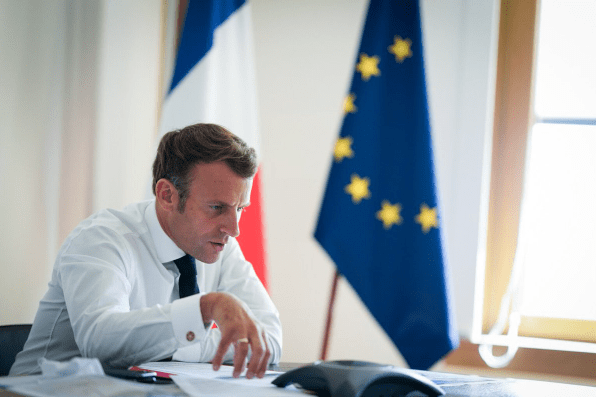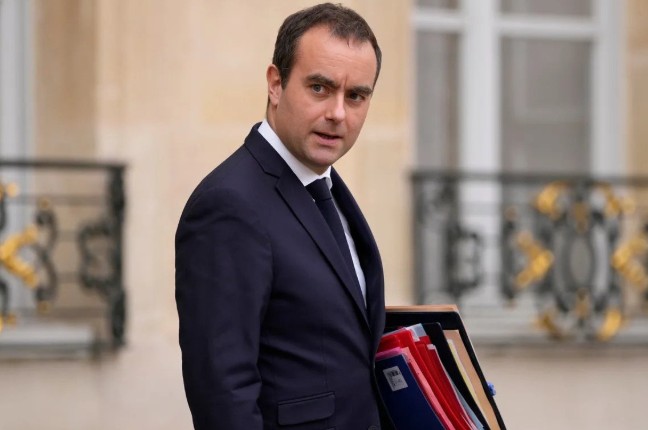France has plunged deeper into political uncertainty following the shock resignation of Prime Minister Sébastien Lecornu just 26 days into the job.
Appointed in the wake of François Bayrou’s failed government, Lecornu’s swift departure marks the latest in a string of political setbacks for President Emmanuel Macron, who now finds himself with dwindling choices and a deeply fractured parliament.
France PM Sébastien Lecornu quits after 26 days
Lecornu’s exit came less than 24 hours after unveiling his cabinet, a largely unchanged roster from his predecessor’s.
His lineup was met with immediate resistance from across the political spectrum. Parties in the National Assembly openly threatened to reject the government in a confidence vote.
Now, Macron is left facing a familiar and increasingly frustrating dilemma: how to govern a country where no one can agree.
A Crisis with No Clear Path Forward
This latest collapse is symptomatic of the larger instability that’s plagued French politics since July 2024, when Macron gambled on snap parliamentary elections after a heavy defeat in the European Parliament vote.
Instead of winning clarity, he ended up with a deadlocked parliament ideologically split, uncooperative, and unwilling to compromise.
“The only wise thing to do now is to hold elections,” said Marine Le Pen of the National Rally (RN).
“The joke’s gone on long enough. French people are fed up. Macron has put the country in an extremely difficult position,” she added.
And many would agree. With no majority coalition, little appetite for cooperation, and mounting public frustration, the machinery of government has stalled.

Three Options – None Easy
Macron has three options on the table:
- Appoint a new Prime Minister.
- Dissolve the National Assembly again.
- Resign himself.
The third option is almost unthinkable. Macron has been clear that he won’t step down before his term ends in 2027. A new prime minister? That, too, seems increasingly unlikely.
Lecornu, once considered Macron’s final ace, was a loyalist who was supposed to steady the ship. If even he couldn’t hold it together, who else can?
A Socialist-led government might be possible, but few believe it would survive long. The logic, then, points to only one realistic path: another round of legislative elections.
A sweeping victory for Le Pen’s far-right National Rally and a crushing defeat for Macron’s centrist camp.
Lecornu’s Final Words: A Fractured Political Landscape
In a brief but pointed speech outside Hôtel de Matignon, the official residence he occupied for less than a month, Lecornu didn’t hold back.
He criticised the “partisan appetites” of various political factions, accusing them of acting “as if they had an absolute majority.”
“I was ready for compromise, but all parties wanted the other party to adopt their programmes in their entirety,” he stated.
“It wouldn’t need much for this to work,” he added, calling for humility and the setting aside of egos.
But compromise, in today’s divided National Assembly, seems a distant dream.
A System Under Pressure
France is now on its fifth prime minister in under two years. Michel Barnier, appointed in September 2024, lasted barely three months.
His successor, François Bayrou, was brought down after parliament rejected his €44 billion austerity budget aimed at reining in public spending. France’s economic backdrop only heightens the urgency.
The country’s deficit stood at 5.8% of GDP in 2024, and the national debt has ballooned to 114% of GDP, one of the highest in the eurozone, behind only Greece and Italy.
That equates to nearly €50,000 in public debt per citizen. Following Lecornu’s resignation, the Paris stock exchange reacted sharply, with shares sliding amid investor unease.
The Élysée remained silent on Monday. No official word from Macron. No hint of who or what might come next.
The French president is now cornered by political reality. His options are narrowing. And with the public’s patience wearing thin, time may be his greatest enemy.
Whatever decision he makes, one thing is clear: France is bracing for yet another chapter of political drama.






